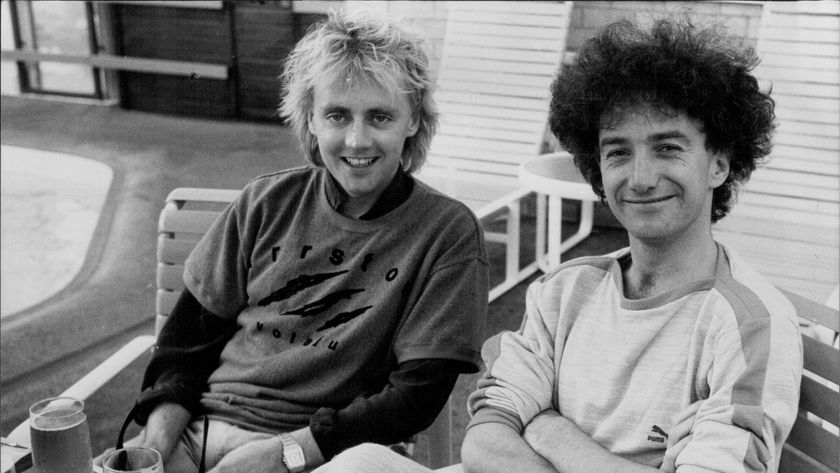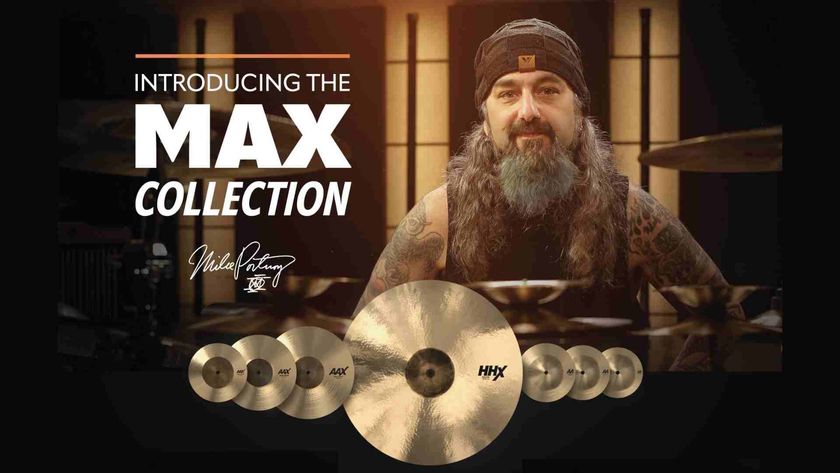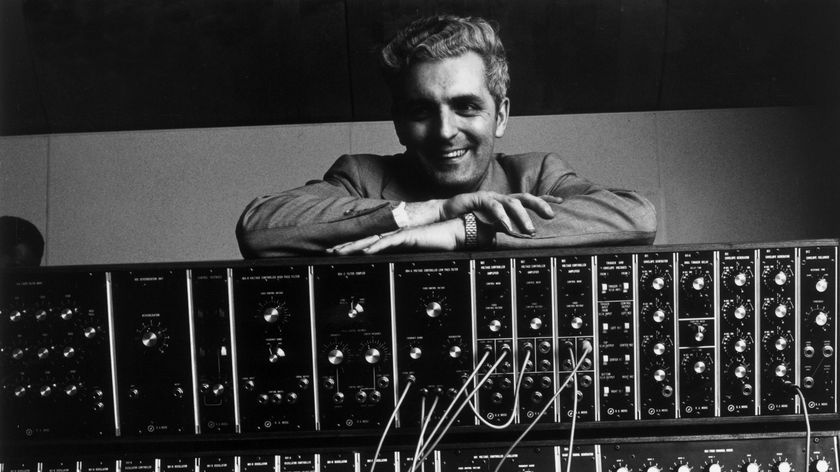Dave Grohl, Dale Crover, Dan Peters and Chad Channing talk Nirvana's Nevermind
Drumming foursome on the band's iconic album
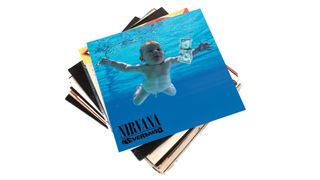
Exit Chad Channing
As of 23 September it is a staggering 24 years since the release of Nirvana's Nevermind.
The record was a huge worldwide smash, but came off the back of some major uncertainty at the Nirvana drum stool.
Not too far into work kicking off on the album, drummer Chad Channing was ousted from the band.
Of his departure, Chad recalls: “It just came down to music. I’ve always been a pretty big songwriter in every band I’ve been in. I was hoping to one day have the opportunity to chip in a little more with that. At one point after recording Bleach, Kurt talked about the possibility of me and Krist helping out with some songwriting and I was like, ‘That’d be great.’ Although I never had the opportunity to show him anything, I realised over time that it wasn’t going to happen. It all accumulated and those guys realised it was time for me to move on.”
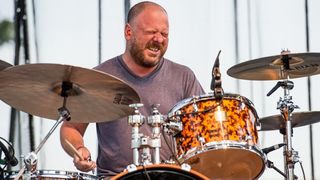
A temporary fix...or two
In desperate need of a drummer, Kurt and Krist called on a familiar face – Dale Crover. But, Crover’s refusal to leave The Melvins meant he was just a temporary fix.
“After they fired Chad they got a call from Sonic Youth for a tour so they called me up and had me step in for the tour,” says Dale. “They were talking about having me play on their next record, which would have been Nevermind. Thinking about it now I don’t know why I couldn’t have been in two bands. By the time we were doing the tour they had decided they wanted to get Dan Peters from Mudhoney.”
Peters was welcomed into the band, but the revolving drum stool of Nirvana still had one last spin left in it.
“I played one show and recorded one single [Sliver],” Peters told Rhythm in our November 2013 issue. “I had actually talked to them because they had been auditioning people. But my thing was I’m not going to audition for you but if you want me to, you know what I do, you’ve seen me play, if you want I’ll play with you guys and they’re like no no we’re not auditioning any more people and stuff.”

Here comes Grohl
Despite Peters’ arrival, it transpired that Nirvana in fact had their eye on another drummer. A certain young buck by the name of Dave Grohl.
Crover recalls: “They saw Dave play and after playing with me they kind of realised that they needed somebody that was more my style. It was too bad as they’d already asked Dan to join. I know they were already trying to get Dan to play a bigger kit, it was that Black Flag set-up with the big bass drum and the big tom. They had already tried to get Chad to play that kit and then they saw Dave playing a kit like that. They saw that and were like, ‘Uh oh.’ A few days later Scream were in LA and their bass player quit the band and took all of their money. Those guys were stranded in LA. Dave called us up and Buzz [Osborne, Melvins frontman] told him that there was this band called Nirvana that saw him playing and they might be interested in playing with him.”
Peters picks up the story: “I met [Grohl] the night before we played the show and he was with those guys, like, ‘I’m the drummer from Scream’, and I was like, ‘Yeah, y’know.’ And the next day there was a photoshoot for the Sounds cover…and they were like, ‘Don’t worry about turning up for the photoshoot,’ and I was like, ‘I can make it down there no problem.’ So they couldn’t come out and say, ‘Yeah we’ve got a new drummer and his name is Dave and he’s right there.' So I went and did the photoshoot while Dave’s sitting there eating a hamburger at the barbeque they were having.”
“They were very weird,” Grohl told Rhythm in 1993 of meeting his future bandmates. “Krist is 6’7”-and-a-half, and kind of a hippie pothead philosopher, hilariously funny, incredibly eccentric, definitely an individual. And then Kurt is tiny and reserved and just quiet. They were both a mystery to me – I did not see myself fitting into that picture at all when they picked me up from the airport.”
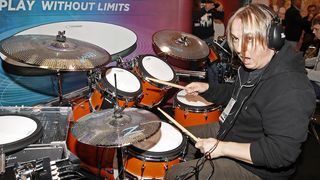
'You guys are going to be huge!'
With first Channing and then Peters discarded, Grohl quickly adapted to life in Nirvana and finished up work on what would become Nevermind.
Grohl adds: “I remember Donita [Sparks], the guitar player and singer in L7, listening to the tape and telling me, ‘You guys are going to be huge, this is perfect; it’s really great rock and it’s got great melodies and it’s driving and Kurt’s voice is so great and, man, this really could be it!”
There was growing confidence that Nirvana could make a name for themselves, but not everyone was certain it would go stratospheric.
Dale Crover recalls: “At this time hair metal was still big so the people that we met in LA, some of the managers and guys from labels were stereotypical, cheesy A&R guys that we were all against. Not that we didn’t want to sell records or be on a big label, we looked at bands like the Sex Pistols that got away with murder while on a big label. [Nirvana] wanted to do something like that, sign a big deal and sell records. Talking with Nirvana early on, Sonic Youth had just sold 100,000 records and I was like, ‘You guys could maybe sell double that.’ No one was more surprised than those guys that they blew up like they did. Nobody knew it was going to happen. It’s a rags to riches story, those guys had nothing.”
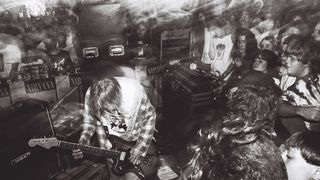
Chad looks back with no regrets
Nevermind most certainly did blow up. Released on 24 September 1991 the record, powered by the runaway smash single ‘Smells Like Teen Spirit’, brought a musical sea change with it almost overnight, going on to sell more than 30 million copies worldwide.
For many, their former bandmates going on to achieve such enormous acclaim so soon after they had been ousted from the group would have been a bitter pill to swallow, but today Chad Channing remains proud, rather than downtrodden, by Nevermind’s impact and legacy.
“I remember when I first heard Nevermind,” he says. “Someone had a tape of it and I thought, ‘Wow, this is a fantastic record,’ I realised that the songs that we did, when they re-tracked them with Dave, he had kept the drum parts that I wrote. Being a drummer there are a few minute things that he did differently, but as a whole what I did was kept. I felt really good about that and I was pretty honoured that they decided to keep my drum parts that I had written. I thought, ‘Wow, right on!’
“The way I look at it is, like with everything in life, you need the right puzzle pieces and everybody plays a part. When those guys were starting out and went through different drummers, they all played their part and then I came along and had my part in the band and helped get them to the next level and then Dave took over. And he is a fantastic drummer. His playing on Nevermind is fantastic, and it was what they needed. Even when Dan Peters jumped in for a brief time and they did the ‘Sliver’ single, everybody has a role and a part to play. I wasn’t there for the whole thing but I was there for the part of it that I needed to be part of.”

Rich is a teacher, one time Rhythm staff writer and experienced freelance journalist who has interviewed countless revered musicians, engineers, producers and stars for the our world-leading music making portfolio, including such titles as Rhythm, Total Guitar, Guitarist, Guitar World, and MusicRadar. His victims include such luminaries as Ice T, Mark Guilani and Jamie Oliver (the drumming one).
Most Popular








